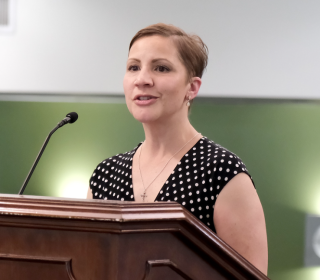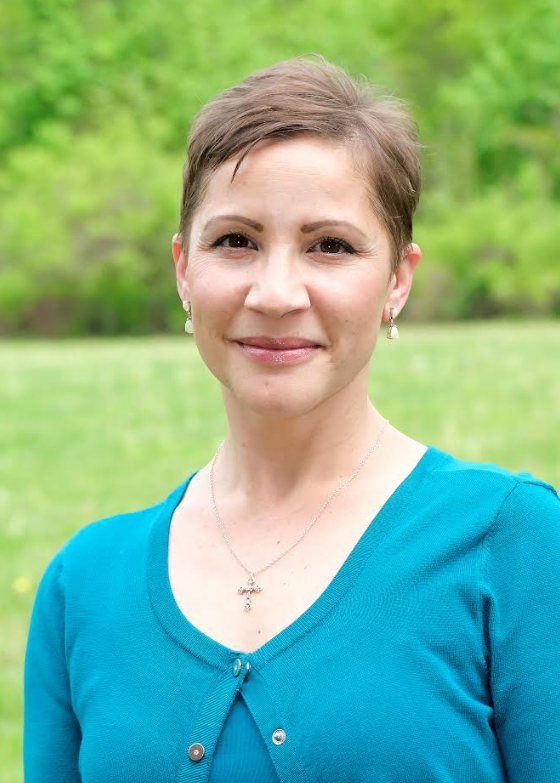Professor Laura Garofoli has felt a desire to serve Fitchburg State since her arrival in 2005.
“When I came to Fitchburg State, it felt like home almost instantly,” she said. “I’ve always just wanted to give as much as I can to the institution. It’s a huge part of my identity as a professional. To me, it means serving my students, the department, the greater campus and the community.”
She joined the Fitchburg State community as a member of the Education Department, but later moved to Behavioral Sciences and then to Psychological Science when it became its own department in 2015. In her new department, she played an instrumental role in the shaping and revising of curriculum, developing new courses and helping to design its internship program.
While her widespread university engagement includes service on the All University Committee, the Center for Teaching and Learning and the Harrod Lecture Series, her foundational role in the development of the First-Year Experience (FYE) looms large.
“I’m an educational psychologist, so teaching and learning is my wheelhouse,” she said. “When we were talking about developing a course to help students succeed in college, I knew I needed to be involved in that. It is the broadest student retention initiative ever undertaken in the curriculum in the history of this campus, so I wanted to be part of it.”
Garofoli developed and implemented a 30 to 40-hour faculty professional development program that runs each summer, and facilitates the FYE faculty community of practice groups that meet every other week during the fall semester.
To assist her colleagues in preparing for this work, when the pandemic hit, she abandoned her book-writing project to instead create a fully remote professional development program for FYE faculty. Her goal was to create a culture of competency around reading, information literacy, and academic habits of mind for faculty, staff, and students alike.
FYE launched as a pilot in 2018, and grew to full implementation in Fall 2021.
Garofoli said she is thrilled when she hears students talking about concepts as something they learned during FYE. “We’re starting to see that it’s permeated the culture among students, but that can’t happen if the faculty aren’t on board,” she said. “We have an extraordinary core group of faculty on this campus teaching FYE, and the professional learning that they go through every single summer, they’re all in. They hone their skills. They’re so invested, and it’s been amazing watching this group grow and coalesce. We support one another, we speak the same language about student outcomes, we help each other redesign assignments.”
This buy-in across disciplines is especially important post-COVID, she continued.
When we were talking about developing a course to help students succeed in college, I knew I needed to be involved in that.
“The students have changed,” she said. “They have gone through something that is incalculable to us. For us as a faculty community of practice, to know that we are always ready to figure out what shifts are happening and what we can do to improve our FYEs every single year, is a phenomenal outcome.”
Beyond FYE, Garofoli contributed heavily to the development of assessment tools for the reading and information literacy course learning outcomes, with the aim of facilitating the assessment of these foundational skills across the General Education curriculum, where she is also a member of the Gen Ed Program Area.
She has also offered her expertise at the local and national levels, promoting children’s learning and safety and serving as a senior fellow and program panelist with the prestigious Ford Foundation. As a national Reading Apprenticeship Facilitator, she has worked at the collegiate level as well as with high school and middle school teachers to help students become better readers. Garofoli’s contributions were recognized at the state level last year with the Manuel Carballo Governor’s Award for Excellence in Public Service.
Garofoli said she sees service as integral to her experience at Fitchburg State. “If a place is going to invest in you,” she said, “you have to invest in the fabric of the place as well.”

